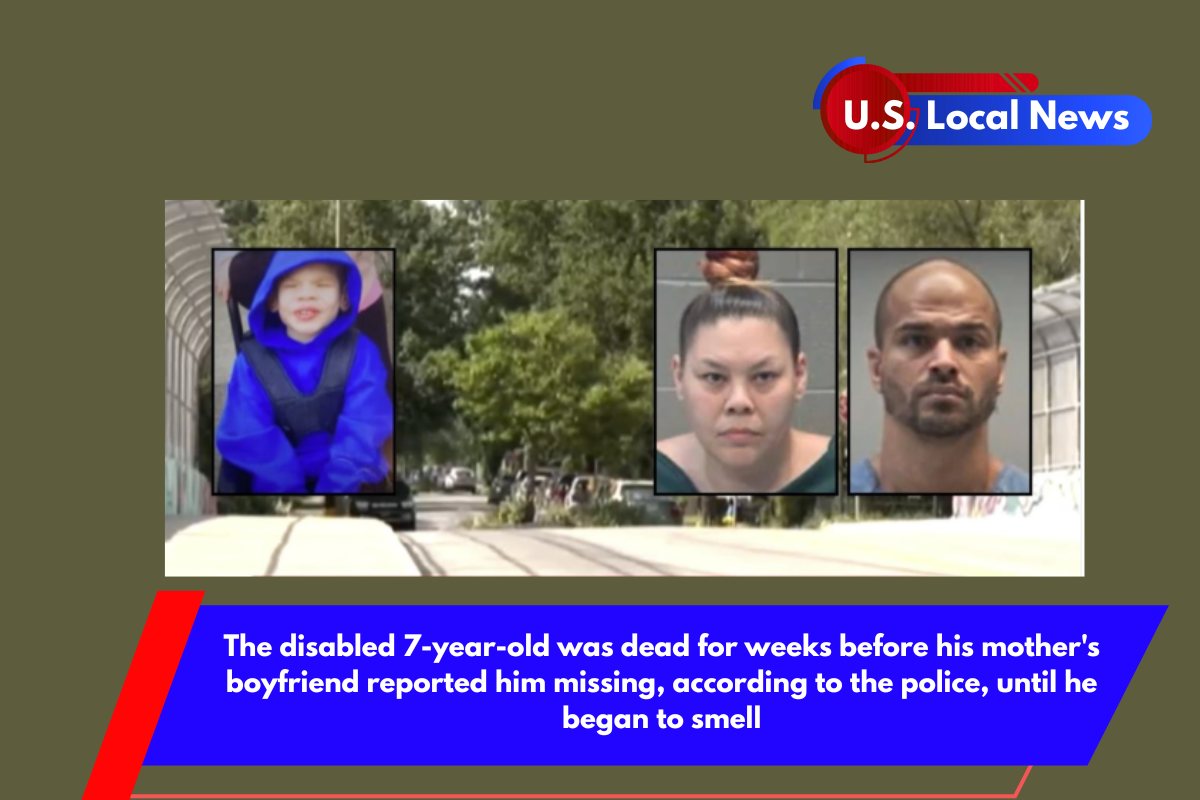The family of a man who died in an Indiana jail is suing the sheriff and jail staff, alleging that his repeated pleas for help were met with statements like “stop being a p—y” and “you are not getting a free ride to the hospital today.”
Troy Dean Pownell’s family filed a lawsuit in federal court in Indiana on Monday against Tippecanoe County Sheriff Robert Goldsmith and several jail employees. The lawsuit accuses the jail and its employees of deliberate indifference and negligence.
“Individuals in a county jail are entirely dependent on jail officers and nurses to provide emergency medical care,” lawyers Stephen M. Wagner and Susannah Hall-Justice said in a statement. “When jail personnel deliberately ignore a sick inmate under their care, they run afoul of the U.S. Constitution and should be held accountable.”
Troy Allen Pownell, Pownell’s 18-year-old son and the administrator of his father’s estate, filed the lawsuit.
Troy Dean Pownell, 38, was arrested on April 2, 2024, after failing to appear in court for his drug-related case. When he entered the jail, he stated that he felt fine and had no health problems.
However, his health deteriorated the following day when he began to experience “physical discomfort” that limited his movements, according to the complaint. His condition worsened on April 6, when he began dry heaving and experiencing stomach pain. By April 7, he was complaining of “severe abdominal pain,” according to the lawsuit.
The next day, his fellow inmates began to express concerns to jail staff, according to plaintiff lawyers. However, medical personnel were reportedly slow to respond, and when they did, their actions were inadequate.
A nurse discovered Pownell in his cell, laying on the floor, pale, and sweating profusely, according to the suit. When Pownell told her about his abdominal pain, the nurse noticed an abnormal heart rate and slow pupil response, according to the lawsuit.
Pownell admitted to using heroin shortly before his arrival at the jail. The nurse “disregarded Troy’s serious abdominal pain, instead insisting it was simply a symptom of drug withdrawal,” plaintiff lawyers wrote. Staff took Pownell to the medical unit, where he had abdominal X-rays.
Nurses continued to treat Pownell as if he were going through drug withdrawal, administering electrolytes. However, his lawyers pointed out that peak withdrawal symptoms typically appear one to three days after the last drug use; Pownell’s peak symptoms, on the other hand, did not appear until nearly his sixth day in jail, according to the lawyers.
“It was obvious on April 8, 2024, that Troy was suffering from a serious medical condition other than drug withdrawal,” according to the claim.
His lawyers claim that despite his repeated pleas to go to the hospital, he was ignored. One nurse allegedly stated in her notes that she believed he was “faking” it.
Wagner and Hall-Justice write that their client showed signs of a perforated ulcer, but nurses continued to believe he was experiencing opioid withdrawal.
“You are not getting a free ride to the hospital today,” a nurse told Pownell, according to the lawsuit.
Pownell and other inmates continued to press the call button for assistance, but their requests were ignored, and they were told the button was “for emergencies only.” At one point, a guard allegedly told Pownell to “stop being a p—y.”
The X-ray results arrived around 5:30 p.m. on April 8. They revealed a “nonobstructive abdominal bowel gas pattern,” according to his lawyers. By that point, he had “curled up in a ball” and was vomiting.
Around 7:30 p.m., he started having seizures. When staff took him out of his cell, he was “cold to the touch and had no pulse.”
“It took 1 hour and 33 minutes from the time that [Pownell’s cellmate] began to press the call button again around 6 p.m. until anyone finally arrived to assist Troy, who was dying,” the lawyer representing the plaintiffs writes.
Paramedics took Pownell to the hospital, but it was too late. Doctors pronounced him dead.
A coroner determined that the official cause of death was sepsis caused by a “perforated duodenal ulcer, with cirrhosis of the liver contributing.”
“Troy died a slow and painful death,” Wagner and Hall-Justice wrote.
Troy Allen Pownell told his lawyers that his father’s medical complaints should have been taken seriously.
“I miss my dad every day and just wish they would have helped him when it was so obvious that he needed to go to the hospital,” he told me. “We hope that this case will change the way people with medical problems are treated in jail.” “Rest in peace, Dad.”













